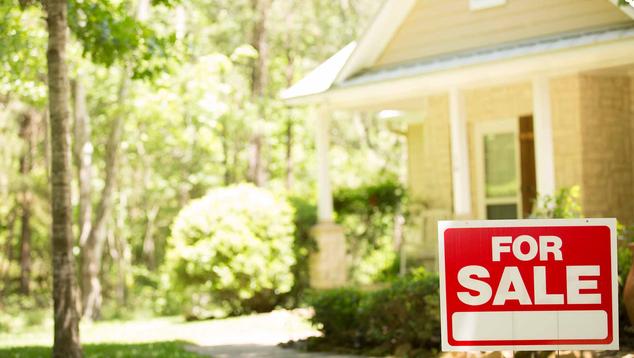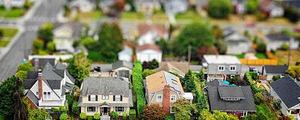Story Highlights
- 21% say it is a good time to buy a house, lowest in Gallup’s trend
- Prior to 2022, 50% or more consistently thought it was a good time to buy
- Significantly fewer expect local housing prices to increase in next year
WASHINGTON, D.C. -- Twenty-one percent of U.S. adults believe it is a good time to buy a house, down nine percentage points from the prior low recorded last year. The 2022 and 2023 readings are the only times that less than half of Americans have perceived the housing market as being good for buyers in Gallup’s trend since 1978.
The latest results are from Gallup’s annual Economy and Personal Finance poll, conducted April 3-25. Seventy-eight percent currently say it is a bad time to buy a house.
Gallup first asked Americans about their perceptions of the housing market in 1978, when 53% thought it was a good time to buy a house. Thirteen years later, when the question was asked again, 67% held that view. The record high of 81% was recorded in 2003, at a time of growing homeownership rates and housing prices.
As prices continued to increase in subsequent years, creating a housing “bubble,” Americans became less optimistic about housing market conditions, with between 52% and 58% saying it was a good time to buy from 2006 through 2008.
After the housing bubble burst in the first half of 2007, home prices headed downward the next two years, and generally were flat through 2011. With lower prices and generally low interest rates, public optimism about homebuying recovered, climbing to 71% in 2009 and holding in the high 60s or low 70s through 2017.
By 2020, in the early stages of the coronavirus pandemic when economic activity was severely limited in many parts of the country, 50%, a then-record low, thought it was a good time to buy a house.
In the past two years, as housing prices have soared and the Federal Reserve has raised interest rates to try to tame inflation, houses have become less affordable for many Americans, and views of the housing market have tumbled.
Opinions of the housing market are bleak and generally similar among all major subgroups, including by region, urbanicity, homeownership status, income, education and party identification. Subgroups in these categories range from 18% to 24% thinking it is a good time to buy a house.
Fewer Expect Local Home Prices to Increase
In addition to measuring Americans’ housing market perceptions in general, Gallup monitors public expectations for housing prices in their area. In 2021, 71% predicted local home prices would increase over the next year, the highest percentage holding that view in Gallup’s trend dating back to 2005. Last year, a similar 70% expected home prices to increase. Americans’ 2021 and 2022 predictions were generally accurate, with home prices reaching record highs in the fourth quarter of 2022, when the median home sales price in the U.S. was $479,500.
Now, as home prices have begun to fall in many areas of the country, to a median of $436,800 in the first quarter of 2023, fewer Americans expect home values in their area to rise in the coming year. Currently, 56% hold this view, while 25% believe prices will stay the same and 19% think they will decrease.
Despite the declines this year, current expectations for home prices are still relatively high. In 2020, 40% thought home prices would increase, and from 2009 through 2012, after the housing bubble burst, between 22% and 34% did.
Midwestern, Rural Residents Less Likely to Expect Home Values to Increase
Americans living in different areas of the country vary in the extent to which they believe local home prices will increase in the coming year. Regionally, Midwestern residents are less likely than those in other parts of the country to predict that home prices in their area will increase over the next year. Whereas 45% of Midwestern residents expect prices to rise, 55% of Western residents, 61% of Southern residents and 62% of Eastern residents do.
Also, those who live in towns or rural areas (45%) are much less inclined than city (64%) or suburban (57%) residents to predict an increase in local home prices.
Midwestern, Western and town/rural residents show the greatest drops since 2022 in the percentage believing local home values will increase, each dropping by 21 points or more. Southern, city and suburban residents show modest declines, while there has been no change among Eastern residents.
Bottom Line
Fewer Americans now than ever before believe it is a good time to buy a house. The past two years are the only times Gallup has found less than half of Americans endorsing a home purchase in the prevailing housing market. These bleak homebuying assessments are fairly uniform across most subgroups of Americans.
It is likely that Americans’ pessimism about homebuying reflects the high prices and high interest rates that are conspiring to make mortgage payments less affordable. These attitudes may keep many prospective homebuyers out of the market.
At the same time, Americans still regard real estate as the best long-term investment over stocks, gold and other options, even though fewer give real estate that distinction than have in recent years.
Although 19% of Americans expect home prices to decrease in the coming year -- far below the 38% and 34% who did so in 2008 and 2009, respectively -- they are much less likely than in the past two years to expect prices to go up. Any stabilizing or downward pressure on home prices could make houses more affordable for Americans, particularly if interest rates also stabilize or decline in the coming years.
To stay up to date with the latest Gallup News insights and updates, follow us on Twitter.
Learn more about how the Gallup Poll Social Series works.
View complete question responses and trends (PDF download).




